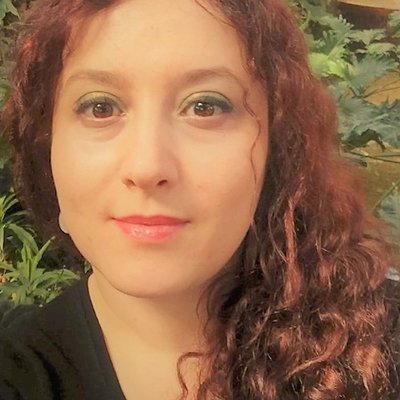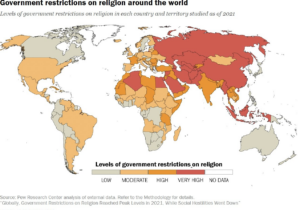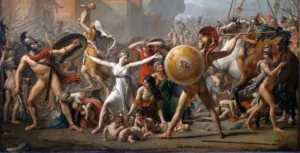Turkish media is once again targeting the ecumenical patriarchate of Constantinople.
On May 4, a pro-government Turkish magazine published a special edition falsely alleging that Ecumenical Patriarch Bartholomew I of Constantinople (Istanbul) helped stage the July 15, 2016, coup attempt.
Following this attempt, the Turkish government blamed the US-based Islamic cleric Fethullah Gülen and his followers. A state of emergency was declared, and a massive purge targeting thousands of people began in Turkey.
The state justified the purge by announcing a new “terrorist group”—the Fethullahist Terrorist Organization/Parallel State Structure or FETÖ/PDY—was responsible for the coup:
The Turkish magazine Gerçek Hayat’s latest 176-page special edition is entitled “FETÖ: Who is the Chief Terrorist Fethullah Gülen? The 100-year history of the most vicious terrorist organization.” The magazine edition, which is expected to remain in circulation until December 31, refers to Gülen “as Islam’s biggest enemy in the last 10 centuries.” It also alleges that key religious leaders, including Bartholomew, are FETÖ co-conspirators and were behind the attempted coup.
The magazine targets other leading members of religious communities and includes their photos. For instance, it targets Ishak Haleva, Turkey’s chief rabbi; Shenork I Kaloustian, the former Armenian patriarch of Constantinople; Pope John Paul II, the former head of the Catholic Church; George Marovitch, the former Vatican representative in Turkey; and Abraham Foxman, the former director of the Anti-Defamation League.
The leaders of Turkey’s religious minorities have condemned these allegations. The ecumenical patriarchate of Constantinople, for instance, issued a written statement, which said:
In an article published in the magazine Gerçek Hayat, community members and religious leaders are targeted with unsubstantiated slanders that enormously upset the Christian and Jewish members of our country. As much as this is very painful, these false claims that are made in such a dire and irresponsible way are making the Orthodox community concerned. Unfortunately, it is very likely that racist manifestations and rapes that are happening in many countries will happen here as well.
Sadly, patriarchate’s prediction came true. On May 8, an individual tried to burn the Dznunt Surp Asdvadzadni Church in Bakırköy in a hate attack.
The Turkish media has repeatedly made similar false allegations against Bartholomew. For instance, on September 6, 2016, the pro-government newspaper Yeni Şafak published a column titled “CIA-Gülen-Fener [Ecumenical Patriarchate] Connection and the Secret Partners of 15 July.” The newspaper Akşam also targeted the church in its headline entitled “Patriarchate-CIA- Gülen Alliance.”
The reports were based on a fabricated letter, which was attributed to retired US Ambassador Arthur H. Hughes and was placed on the Oriental Review’s website. The letter falsely claimed that Bartholomew was involved in the attempted coup to overthrow the Turkish government. Hughes then disavowed the Oriental Review article in an open letter to Archbishop Demetrios, primate of the Greek Orthodox Church in America.
The ecumenical patriarchate also responded to the Akşam story through a statement sent to the newspaper Agos:
This unfounded story caused deep sorrow within the Greek community in Turkey and especially for our Patriarch. The editors of Akşam Daily should have known that this unfounded story, which was published for the purpose of inciting hatred against His Eminence, could lead to grave consequences. We state that this story is really regrettable and grievous for us.
The patriarchate has commonly faced such pressures and slander campaigns. Many books are filled with conspiracies targeting the patriarchate as a source of “treason,” “disorder,” and “trickery.” Titles include Moles of Patriarchate: The Plan to Destroy Turkishness and the Role of Local Greeks, The Dagger Inside of us [Turkey]: The Fener Greek Patriarchate, Hagia Sophia and the Secret Games Played on the Patriarchate, The Monastic Power and The Orthodox Card of Imperialism, The Spies of the Patriarchate, and The Claw of Greece, the Patriarchate, and Orthodoxy, among others.
However, the Greek Orthodox community is an indigenous people who are legitimate heirs of their lands, where they were once the majority and ruled the Eastern Roman (Byzantine) Empire. The ecumenical patriarch is regarded by the church as the successor of Andrew the Apostle. According to the official website of the ecumenical patriarchate:
The Ecumenical Patriarchate is the foremost ecclesiastical centre of the Orthodox Church throughout the world, tracing its history to the Day of Pentecost and the early Christian communities founded by the Apostles of Jesus Christ. According to tradition, the “First-Called” of these Apostles, Andrew, preached the Gospel around Asia Minor, the Black Sea, Thrace and Achaia, where he was martyred. In 36 AD, he founded the Church on the shores of the Bosphorus in the city known then as Byzantium, later Constantinople and today Istanbul.
In 1071, the Seljuk Turks from Central Asia invaded and began to capture Anatolian territories, which then constituted the Eastern Roman Empire. In 1453, Ottoman Turks initiated a bloody military campaign that led to the seizure of Constantinople, the capital of the Eastern Roman Empire. Since then, the ecumenical patriarchate of Constantinople, the mother church of most Orthodox churches, has been under Turkish dominion.
Over the centuries, Turkish governments altered the demographic character of Constantinople and Anatolia. Year after year, atrocity after atrocity, the Greek-speaking Orthodox community of Turkey has almost become extinct.
The biggest blow came to the Greek community of Anatolia in 1914–23 during the Greek genocide. In its concluding year, there was a forcible population exchange between Turkey and Greece in which many of the survivors of the genocide were forcibly driven from Turkey. Even after the new Turkish Republic was founded in 1923, anti-Greek policies continued. Greeks, like other Christians and Jews, were banned from civil service. The Turkish government or private citizens systematically seized genocide victims’ property.
Thirty-two years later, another blow came to the Greek Orthodox community living in Constantinople. During the anti-Greek pogrom of September 6–7, 1955, Greeks’ homes, schools, businesses, offices, cemeteries, monasteries, and churches were violently targeted. The savage attacks greatly accelerated the emigration of Greeks from Turkey. As a result of these and other pressures, Anatolia’s once-flourishing Greek community has faded away.
“The Greek community is dying, and it is not a natural death,” a middle-aged Greek man told Helsinki Watch in 1991. Today, Turkey’s Greek Orthodox population is only around 2,000.
In an interview with CBS News in 2009, Patriarch Bartholomew said that he “personally feels he is being crucified sometimes,” adding that Orthodox Christians in Turkey are treated as second-class citizens.
It seems that the elimination of the Greek community of Constantinople and Anatolia is about to reach its “successful” conclusion. Meanwhile, the Turkish government keeps harassing its almost extinct native Greek population and continues targeting Bartholomew, the living embodiment of an extirpated nation.







 Live in the DC area? Sign-up for Providence's in-person events list!
Live in the DC area? Sign-up for Providence's in-person events list!